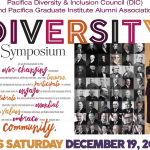
A Mythic Crossroads: Which Way Will We Choose?
by Dennis Patrick Slattery
[Published in New Braunfels’ Herald-Zeitung’s Opinion page, 4A, December 12-13, 2020.]
So many of us are trying to make sense of what has ensued after the election, but little of the discussion has implicated what a mythic shift in consciousness is taking place. Think for a moment of the power of myth in this illustration by mythologist Sam Keen: “A myth can make a cow sacred in one culture and hamburger meat in another.” Same animal, yet very different beliefs surrounding our bovine friends.
In this sense, democracy is a myth, namely, not a lie, as some claim, but rather a set of values and beliefs and attitudes that express a relationship between the individual, the society one lives within, and the larger environment. Simply put, a myth is what we choose to believe in that gives our life coherence, if not meaning and purpose. A life without a myth is a life without meaning. But the myth we live in often remains underground, out of sight, but still very influential in shaping what we think and what we do. Until the myth is challenged, attacked or attempted to be erased. That is where we are today.
Our myth of a democratic society is shaped by three documents: The Constitution, the Preamble to The Declaration of Independence and the Declaration itself, which is our most forceful myth statement. These documents state the myth that shaped our democracy. Within them are listed a set of “rights” but with these rights it seems that attached to them are certain responsibilities. One without the other is ineffectual if one wishes to maintain and defend the myth. As with personal myths held by each of us, there is this larger national myth that breeds coherence, a sense of unity and belonging, and national purpose. If we treasure the myth that reflects us, we will each do our part to maintain it. If we fracture and divide into camps, the myth will lose its cohering power. The written documents that grew originally from its inception gave shape and form to the myth. It also connects us to history—so an intimate correlation exists between history and mythology; they are partners.
As mythologist Joseph Campbell asserted, myths grow from the imagination itself. “It has to do with how you live your life, and to connect what’s seems true to actual lived experience.” I think his observation is valid on both individual and collective levels. They put us in touch with what is beyond us, what we aspire to and instill in us the energy needed to approximate it. Voting, for example, is a ritual, by which we embody and act on the myth that has defined us.
But today it seems that the myth of democracy, with its mysterious and fragile core element of human freedom, is being challenged by the myth of individualism. Campbell believes this latter myth is fine so long as people realize that they “are representing something” that one “is still the agent of something and [they are] a presence. But when the individual is acting only for himself or for his family. . . then you have nothing but chaos.”
The point here is that any political figure especially, is a representative of some ideal or vision beyond themselves. When that collapses in a democracy, then any person who has been elected by the people for the best interests of the people turns inward to use that position to satisfy personal appetites; under such stress the democratic myth may need a respirator to survive. Such personal appetites violate the myth that put them in office to serve something well beyond themselves, something transcendent—the life principle of the people who elected them.
Dennis Patrick Slattery, Ph.D. is Distinguished Emeritus Professor in Mythological Studies at Pacifica Graduate Institute in Carpinteria, California and a resident of New Braunfels.




